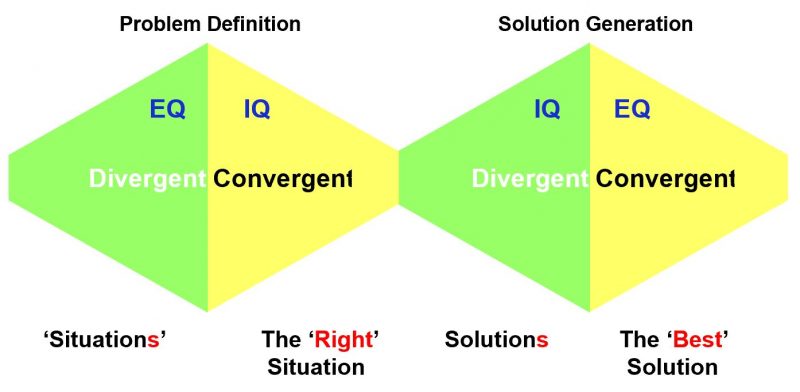Every time I look, the catalogue of different types of ‘intelligence’ seems to get longer. Whether it be musical-rhythmic, visual-spatial, verbal-linguistic, logical-mathematical, bodily-kinesthetic, interpersonal, intrapersonal, naturalistic, existential or moral (to take just the expanded list of the original source of thinking in this domain, Howard Gardner), my working hypothesis is that when a human is born, we all carry more or less the same machinery and potential to develop our overall intelligence. Some will tend to bias that potential towards one form of intelligence over others, while others will have a natural proclivity for another. Vive la difference and all that.
Unfortunately, perhaps because, in theory at least, it has been the easiest to measure, the world still seems fixated on IQ as the primary means of quantifying intelligence. One of the consequences of this is that people with ‘a low’ IQ (e.g. Leeds United fans) somehow get stigmatised (e.g. as ‘Leeds United fans’). The net result is that, because of the sort of work I do, I frequently come into contact with ‘high IQ’ individuals. I’d have to say that some of these people might well have a lot of book-smarts, but they’re also, innovation-wise, the dumbest people I’ve ever met. Their focus on logical-mathematical intelligence has come about because they’ve been fooled into thinking this is the best way to get on in (corporate) life.
From an innovation perspective – innovation being the most difficult thing any person might choose to get involved in – IQ certainly has its place. But far more important is a critical mass of many of the other intelligences. Right at the top of the list being Emotional Intelligence, EQ. EQ eats IQ for breakfast, innovation-wise. EQ >>> IQ.
This is a pity because, in the same way the innovation world attracts a lot of IQ, it rarely manages to attract sufficient EQ. The innovation world to a large extent is an EQ desert. Which, I imagine, might have something to do with fact that 98% of innovation attempts end in failure? I’m not sure how I’d set about testing that the EQ-deficit was significant. But I’m not sure that the answer would be meaningful in any event.
It wouldn’t be meaningful because, what’s happening here is, yet again we find ourselves having a pointless either/or debate. Albeit a subtle one. There might be an overall EQ shortage amongst innovators, but that doesn’t mean we want more EQ and less IQ. Rather it means the multiple intelligence contradiction needs to be managed. Or, better yet, transcended. We want IQ and EQ.
From the ‘management’ side of the story, one thing well worth bearing in mind when an innovation team is working on a complex problem and therefore making use of some kind of divergent-convergent iterative process that different stages of that process benefit from different EQ/IQ ratios.
Having a high level of EQ, for example, is really really important during the initial ‘fuzzy-front-end’ phases of a project when we’re seeking to explore what, if any, market opportunity there might be. Once we’ve explored and diverged as much as possible to identify options, it then becomes time for IQ to take over. Firstly, to help us work out which of the potential opportunities we’ve identified we’re best able to pursue, and then secondly to generate our first swathe of solution clues and ideas.
Finally, when we’ve again ‘diverged til it hurts’, its time for an EQ-dominated mindset to come to the fore again so that we can make sense of the ideas that have been generated, looking at combinations and builds that offer the best chance of resonating with the customer we have in mind.

All four of these stages are necessary, but it is the first and last that best enable us to learn the quickest how we’re going to deliver the ‘best’ solution to the customer. The innovative solution they couldn’t have described to us if we’d gone to ask them directly.
